Eighth Annual Tech Fair Highlights Artificial Intelligence
What if computers could tell the difference between a smile and a smirk?
Computer scientist and facial expression recognition researcher Rana el Kaliouby hoped to answer this question at the eighth annual Technology Fair at California State University, Northridge on May 1. CSUN hosts the technology fair to help familiarize faculty and staff with new technology trends in higher education.
“These devices have very high IQs, but technology is still missing the emotional component,” el Kaliouby said. “Getting devices to have emotional intelligence could be particularly useful in education.”
Using artificial intelligence (AI) in education could benefit students because the software could be adapted to each student’s needs, el Kaliouby said.
The event, organized by CSUN’s Division of Information Technology, featured el Kaliouby’s talk remotely — a first in Tech Fair history — using Zoom, CSUN’s video conference platform.
During the presentation, el Kaliouby asked for an audience volunteer to use the emotion AI AffdexMe app that she developed at the MIT Media Lab and now uses in her Affectiva company to recognize human emotions based on facial cues or physiological responses. She initially developed this technology in her research on mental health and autism, and its uses have expanded over time to capture student engagement during class and emotional responses to events such as political debates, movies and other forms of media.
A volunteer walked to the front of the University Student Union’s Grand Salon and used an iPad whose screen was mirrored on the projector for the audience to see.
“Can you furrow your eyebrow?” el Kaliouby asked the volunteer.
An angry emoji popped up next to the volunteer’s face. Next, el Kaliouby asked the volunteer to pucker her lips, producing a kissing emoji on the screen. The software measures facial expressions to deduce the emotions an individual may be experiencing.
After the presentation, attendees met with representatives from vendors such as Zoom.
“We’re using it at [CSUN] for teaching, study groups and tutoring,” said Dave Rudel, Zoom’s representative. “It also has instant messaging, which is convenient for students because they can join from anywhere on any device — a laptop, a tablet, a smartphone. Anything.”
Vice President for Information Technology and Chief Information Officer Hilary J. Baker said el Kaliouby’s speech was “inspirational.”
“Her quote that ‘AI is creating four out of every five jobs’ is an impetus for us to continue to find ways for our students to learn about AI during their time at CSUN, such as through AI-Jam,” Baker said.

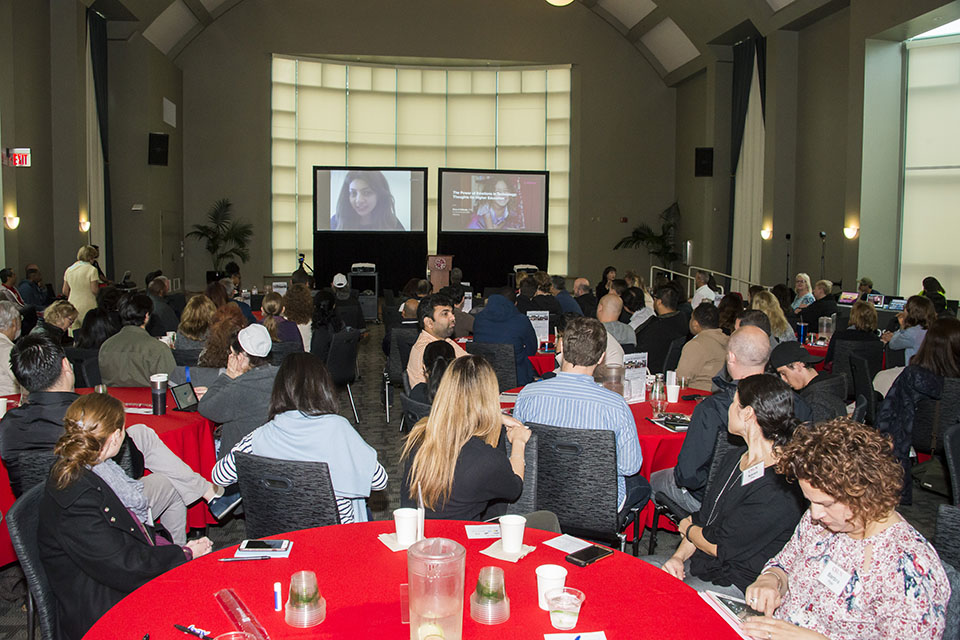
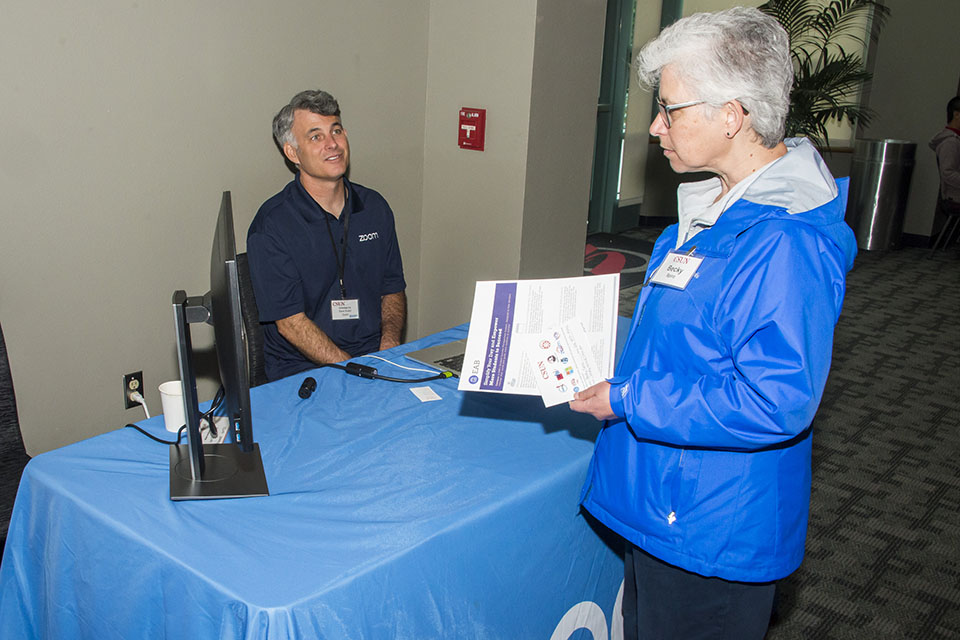
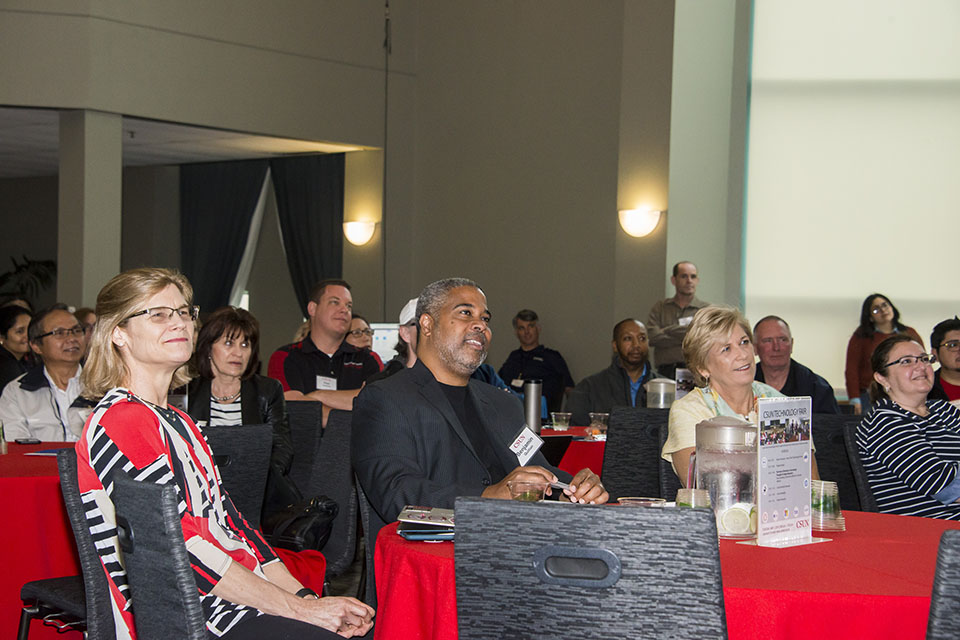
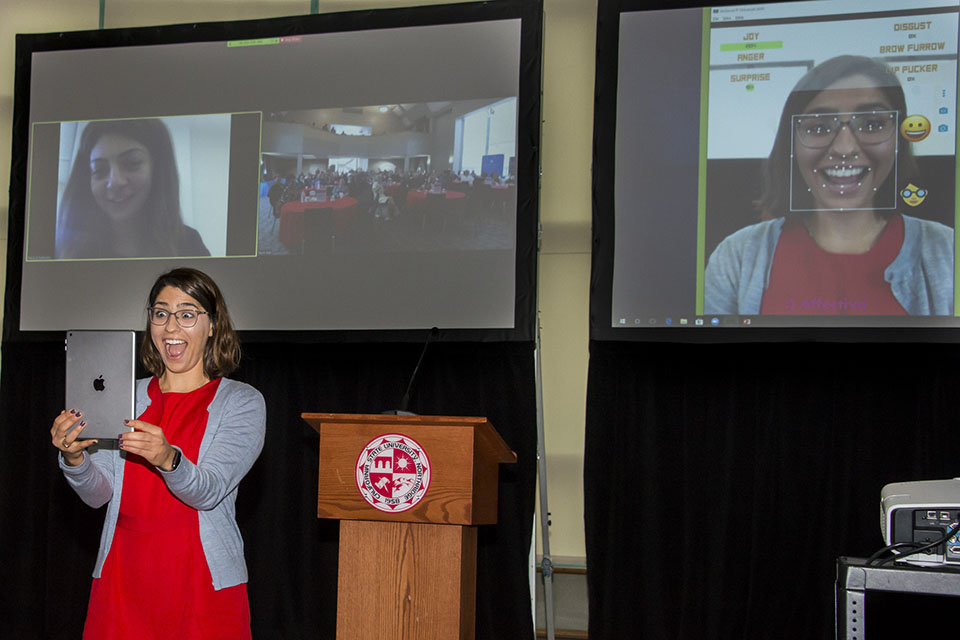
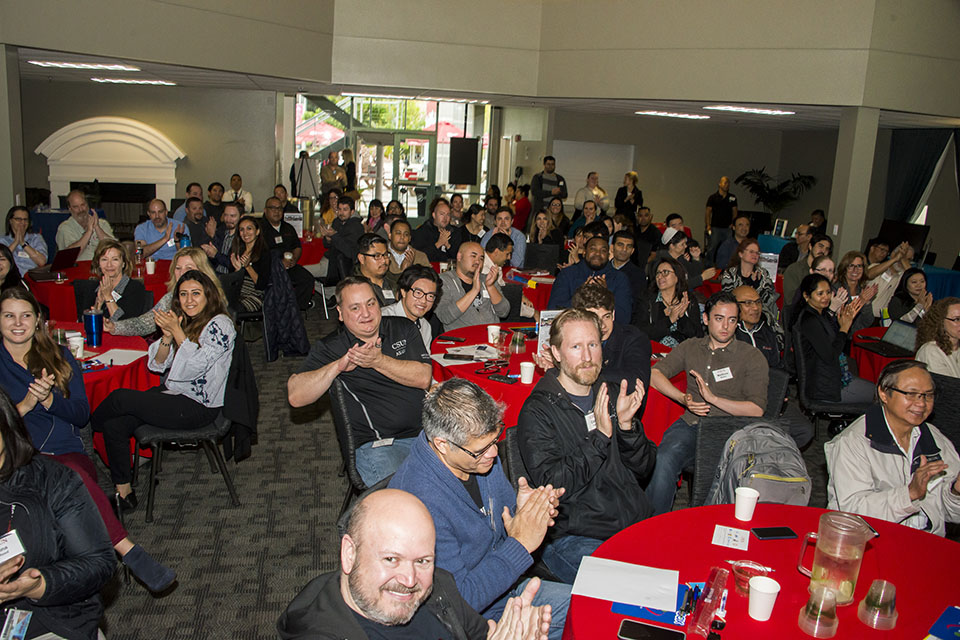
 experience
experience